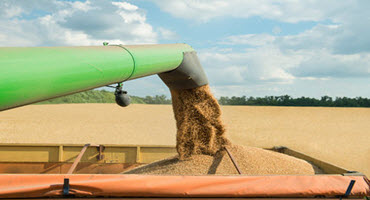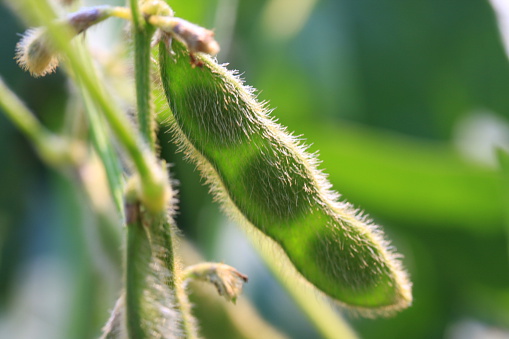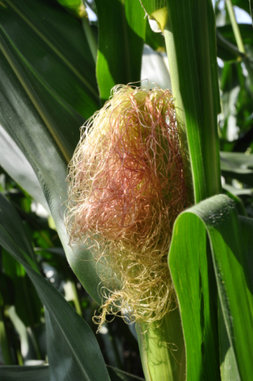Farmers in three states have finished their winter wheat harvest
By Diego Flammini
Assistant Editor, North American Content
Farms.com
American farmers have harvested 75 percent of the U.S. winter wheat crop, according to the USDA’s latest Weekly Weather and Crop Bulletin.
That number is up from the five-year average of 73 percent.
On a state level, the USDA reports producers in Arkansas, Illinois and Texas have completed their winter wheat harvest.
And farmers in Idaho have completed 6 percent of their winter wheat harvest, according to the USDA. That’s the lowest percentage of the 18 states documented.

Soybeans
52 percent of American soybeans are blooming, according to the USDA’s report. That number is up from the 51 percent five-year average.
Louisiana leads the 18 documented states with 91 percent of its soybeans blooming.
North Carolina has the lowest recorded percentage, with 34 percent of its soybeans blooming.
And the USDA recorded that 16 percent of the total soybean crop is setting pods, up slightly from the 13 percent five-year average.
Louisiana leads the nation with 81 percent of its soybean crops setting pods. That number represents a large jump from the 65 percent five-year average.

And only 5 percent of the soybean crops in Wisconsin and South Dakota are setting pods.
The USDA rated 51 percent of the total soybean crop as “good.”
Corn
40 percent of the U.S. corn crop is silking, the USDA reports. That number is down from the five-year average of 47 percent.

On a state level, North Carolina leads the country with 93 percent of its corn crop silking.
In contrast, only 5 percent of the corn crop in Wisconsin is silking. That’s the lowest silking percentage of the 18 states surveyed.
The USDA also ranked 51 percent of the total corn crop as “good.”
Suitable Fieldwork Days
The states with the highest number of suitable fieldwork days for the week ending July 16 were:
- Washington, California, Nevada, Arizona and Wyoming – 7
- Idaho and Utah – 6.9
- Montana, New Mexico and Virginia – 6.7
The states with the fewest number of suitable fieldwork days were:
- Ohio – 1.9
- New York – 3
- Indiana – 3.5
- Louisiana – 3.9
Precipitation for the week ending July 16
State | Precipitation (inches) | Weather Station |
Illinois | 2.41 | Peoria |
Indiana | 3.59 | Indianapolis |
Iowa | 3.27 | Burlington |
Kentucky | 0.76 | Paducah |
Michigan | 1.88 | Lansing |
Missouri | 0.79 | Columbia |
New York | 2.87 | Buffalo |
Ohio | 5.04 | Columbus |
Pennsylvania | 2.07 | Pittsburgh |
Tennessee | 1.70 | Chattanooga |